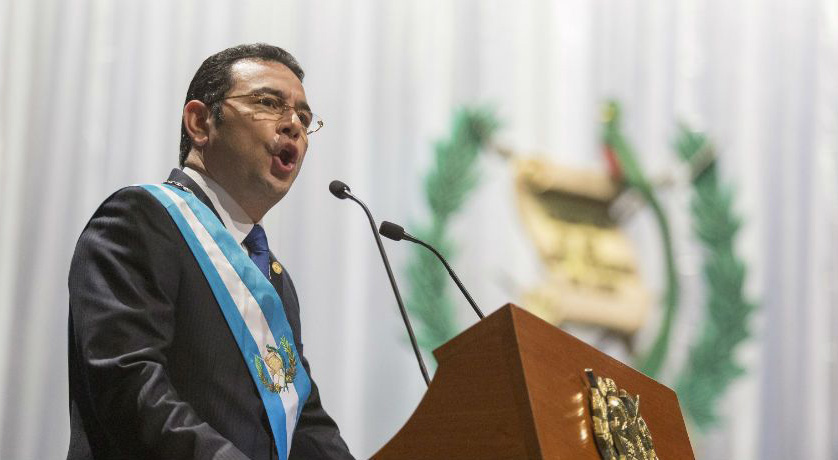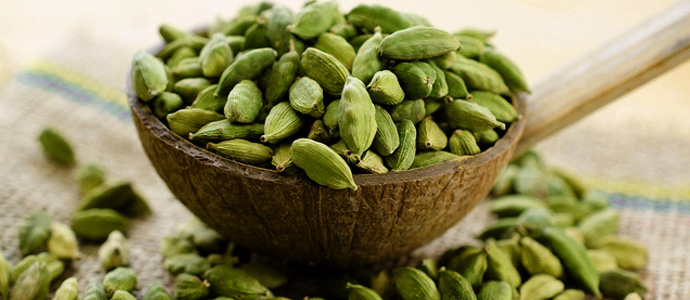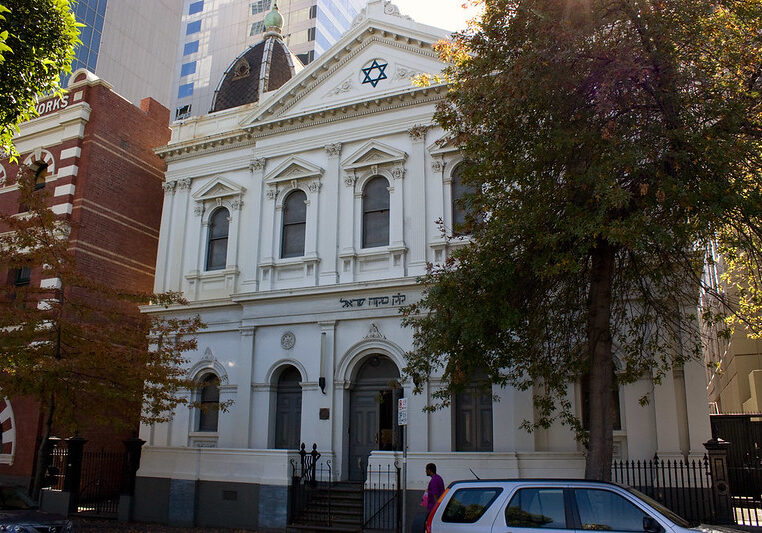Australia/Israel Review, Featured
Scare Trade
Oct 31, 2018 | Ahron Shapiro

Palestinian economic threats over Jerusalem recognition
On December 6 of last year, US President Donald Trump announced that the US was recognising Jerusalem as Israel’s capital and beginning the process of moving its embassy there from Tel Aviv.
Given the howls of protest from the Arab League, the Organisation of Islamic Cooperation and other pro-Palestinian bodies at that time, it may seem surprising to learn that several prominent Arab and Islamic countries have since proceeded to increase their imports of US goods – in some cases substantially.
For example, according to the US Census Bureau, US exports to Egypt have increased by 93.7% in the eight months following the announcement compared to the same period last year, while exports to Qatar soared by 85.5%, Morocco 22.9% and Lebanon, by 16%.
Australia’s neighbour Indonesia, home to the world’s largest Muslim population, increased its US imports by 37.9% in the months since Trump’s announcement.
But as interesting as those numbers are, this essay isn’t about how the US superpower – the world’s second-largest export economy according to the United Nations Statistical Division (COMTRADE) – fared after moving its embassy to Israel. Rather, this is about another country that, later in December, followed the US announcement with one of its own and also moved its embassy to Jerusalem in May – Guatemala.
Now it’s true that Guatemala, a country of 17 million people ranked 80th globally in exports, may not be economically insignificant. However, by any economic benchmark, it should be far easier to push around than 22nd ranked Australia.
So, the Palestine Liberation Organisation (PLO) immediately threatened the Central American country with a boycott of cardamom, Guatemala’s main export to the Middle East, by Arab and Muslim countries. This would naturally have worried the estimated 350,000 Guatemalans who depend on the crop for their livelihoods.
Palestinian journalist Daoud Kuttab, writing for the Saudi daily Arab News on Dec. 28, 2017, suggested the PLO had done its homework identifying Guatemala’s Achilles heel vis-à-vis the Arab and Muslim world.
“According to the PLO,” Kuttab wrote, “Guatemala exports annually [US]$300 million worth of cardamom to Arab and Muslim-majority countries. Cardamom is a major ingredient in Arabic dishes and coffee.”
Indeed, Kuttab added, “The Guatemala Export Association sent a letter to the Foreign Ministry calling on the President to rescind his Jerusalem decision.”
At this point, the Palestinian leadership presumably felt they had Guatemalan President Jimmy Morales right where they wanted him – facing domestic pressures from anxious constituents over a globally unpopular but principled foreign policy decision.
It is an intimidation tactic that the Palestinians had used with great success previously – for instance, in 1994 when Guatemala shelved a plan to move its embassy back to Jerusalem under similar pressure.
This time around, though, Guatemala didn’t stick to the PLO’s playbook.
Guatemalan Foreign Minister Sandra Jovel told the Algemeiner on December 28 “that while the boycott threat from the PLO and Arab countries had been duly noted, it was being viewed in Guatemala mainly as a ‘media scare tactic.’
“This tactic is being used in the media by a small group with special interests who are opposed to our decision to move our embassy,” Jovel said. “But we’ve been strong in that decision, we trust that it was the correct decision, and we will continue to stand by it.”
Fast forward ten months to today, and we can now fairly evaluate the PLO’s cardamom boycott in two words: Epic fail.
Guatemala’s cardamom continues to be in high demand globally.
Jose Gutierrez, a news analyst covering the dried fruit, nuts and spices sectors for the agribusiness intelligence firm Informa, reported on Aug. 20 that Guatemalan cardamom exports increased by 13.3% in value to US$224.0 million and by 3.7% in volume to 19,823 tons in the first half of 2018 compared with the same period of the previous year.

Guatemala’s cardamom: Still in high demand
Asked by AIJAC on Oct. 22 whether there was any sign the boycott had any effect on Guatemalan exports to Arab and Muslim countries, Gutierrez was unequivocal. “No evidence,” he replied. He added that anyone who understands the global cardamom trade would have known from the outset that only Guatemala is capable of exporting a sufficient supply of the spice to meet the world’s current demand. India, the world’s second largest producer, depends on its own production to satisfy domestic needs and convincing that country to export instead would have meant paying much higher prices.
“Some importers may want to boycott Guatemala,” Gutierrez mused, “but there [are] no [better] options… for importing [cardamom].”
From this we learn two important things: First, the PLO’s scare tactic counts on the public pressuring their governments to capitulate to its threats without really knowing how much chance there is of the threatened boycott succeeding. Second, we learn that the PLO can still recruit Arab and Muslim diplomats to mouth threats against countries that take actions that Palestinians don’t like, but these countries cannot be reliably counted upon to participate in a boycott that will inconvenience them. When Arab and Muslim countries were forced to choose between cheap cardamom and taking action against the moving of embassies to Jerusalem, they chose cardamom.
In October, the PLO was at it again with its scare trade campaign. This time the target was Australian Prime Minister Scott Morrison, who had merely floated the idea of recognising western Jerusalem as Israel’s capital and moving the Australian embassy there.
Australia’s Council of Arab Ambassadors played its part in the intimidation game. A meeting at the Palestinian representative’s behest produced yet another trade threat – but ironically it included several envoys from countries which had increased trade to the US in recent months and that continue to buy tons of Guatemalan cardamom.
Australian media focused on a leaked ASIO report that advised that Morrison’s announcement “may provoke protest, unrest and possibly some violence”. Far from an indictment of Morrison’s policy, ASIO’s analysis could be interpreted as simply reflecting the Palestinian leadership’s habitual response to any news they don’t like by scheduling “Days of Rage” and other similar orchestrated violence.
The epitome of the Palestinians’ cynical use of violence was seen in May, when Hamas shifted the date of Gaza’s so-called “March of Return” – really a cover for mass-armed infiltration attempts into Israel – in order to coincide with the opening ceremony for the American embassy in Jerusalem.
While more than 50 Palestinians – the vast majority Hamas militants – were killed by IDF troops defending the border that day, this was not actually a response to the Embassy move. It was the culminating event of the “March of Return” protests, planned anyway for that week to mark “Naqba day”, and would likely have been just as bloody if the US Embassy had remained in Tel Aviv.
Moreover, despite Palestinian threats, there were only relatively minor and brief protests over the Embassy move in Jerusalem and the West Bank.
It was further suggested in Australian media that a free trade agreement between Australia and Indonesia was placed in jeopardy by Morrison’s embassy announcement – even though the source had been anonymous, while the actual Indonesian Trade Minister insisted publicly the deal would not be affected.
It’s not hard to understand why. It comes down to national interest and Indonesia’s Coordinating Maritime Affairs Minister Luhut Pandjaitan made it plain to the Jakarta Post well before the controversy back on Sept. 1 that the agreement met that criteria. “Indonesia and Australia will enjoy zero percent import tariffs for many goods. I think this can significantly increase our exports,” he said.
This pragmatism later extended to the Indonesian press’ assessment of the kerfuffle. A Jakarta Post editorial on October 19 noted that “As a sovereign state, Australia is entitled to move its embassy from Tel Aviv to Jerusalem” and though “Indonesia has every reason to raise its objections to Australia’s policy”, the paper described the episode as an “unnecessary spat” exacerbated by the unfortunate coincidence that the Palestinian Foreign Minister was visiting Indonesia at the time.
The paper concluded, “Worsening relations between the two nations will be counterproductive amid the uncertainties facing the global economy… it would be too much to push [Indonesia’s] own will against its neighbour.”
In other words, though the Palestinian leadership may be eager to try to throw petrol on Australian-Indonesian relations over where Australia chooses to place its Israel embassy, Indonesia broadly recognises that it is not in its own national interest to strike a match.
The Jakarta Post’s editorial sentiment found a common voice in Canberra. You “don’t… expect that two nations will always agree in terms of foreign policy positions as they relate to a third nation,” Federal Trade Minister Simon Birmingham told ABC Radio National “Breakfast’s” Fran Kelly on Oct. 17, “But that shouldn’t get in the way of a strong bilateral relationship.”
The conclusion is inescapable. If the Palestinian leadership cannot even manage to get its closest supporters to isolate a relatively weak country like Guatemala over the Jerusalem embassy issue, it’s extremely difficult to envision a scenario where Indonesia and major Arab trading partners would undo far-reaching bilateral trade and diplomatic ties with a dependable middle-power like Australia.
The next time the Palestinians trot out their diplomatic allies in Canberra for purposes of intimidation (and there will always be a next time), not only is it in Australia’s national interest to stand firm in the face of such threats – it should also be borne in mind that the historical evidence is overwhelming that those threats are almost certainly empty.
Tags: Australasia, Australia, Guatemala, Indonesia, Palestinians






